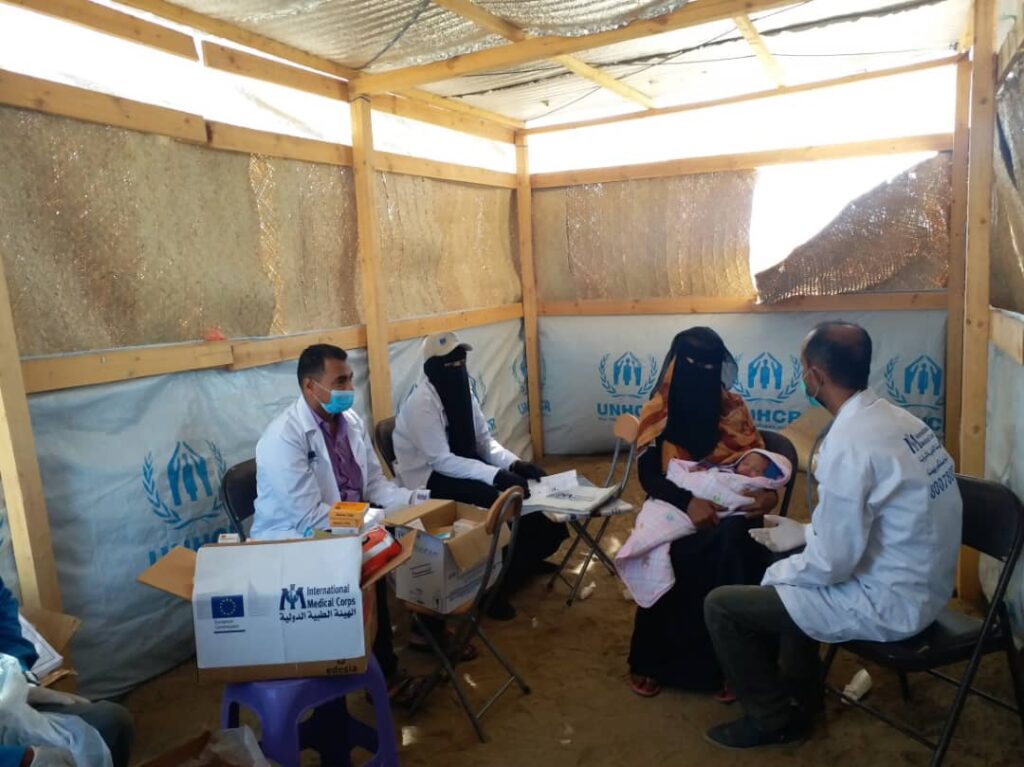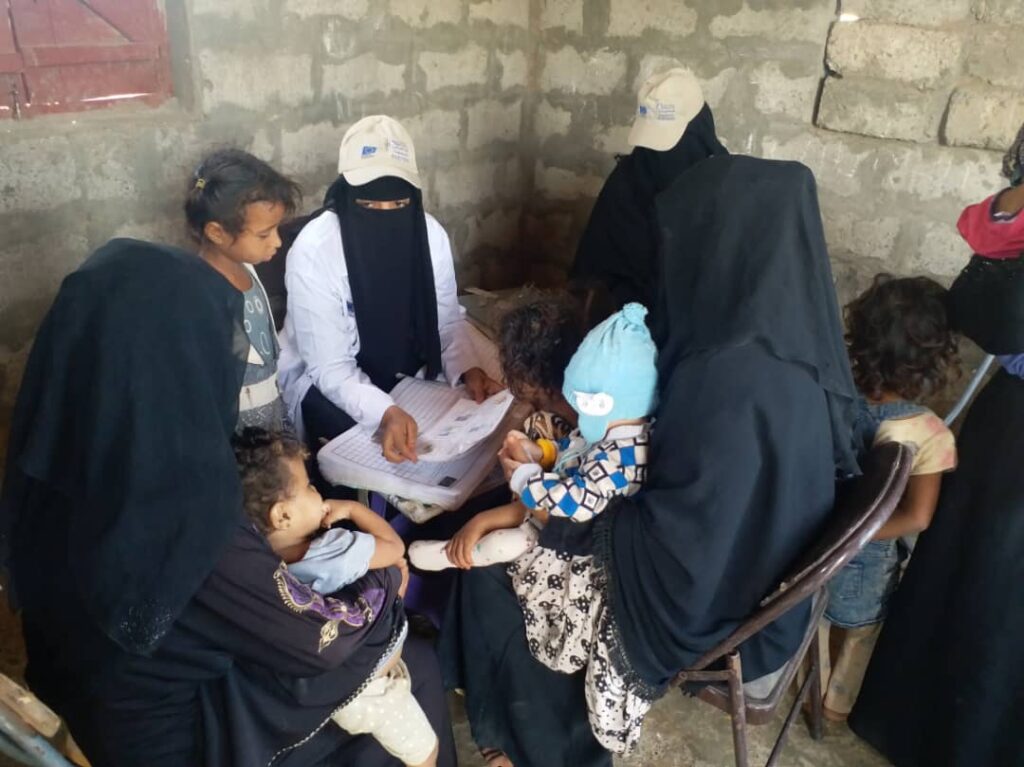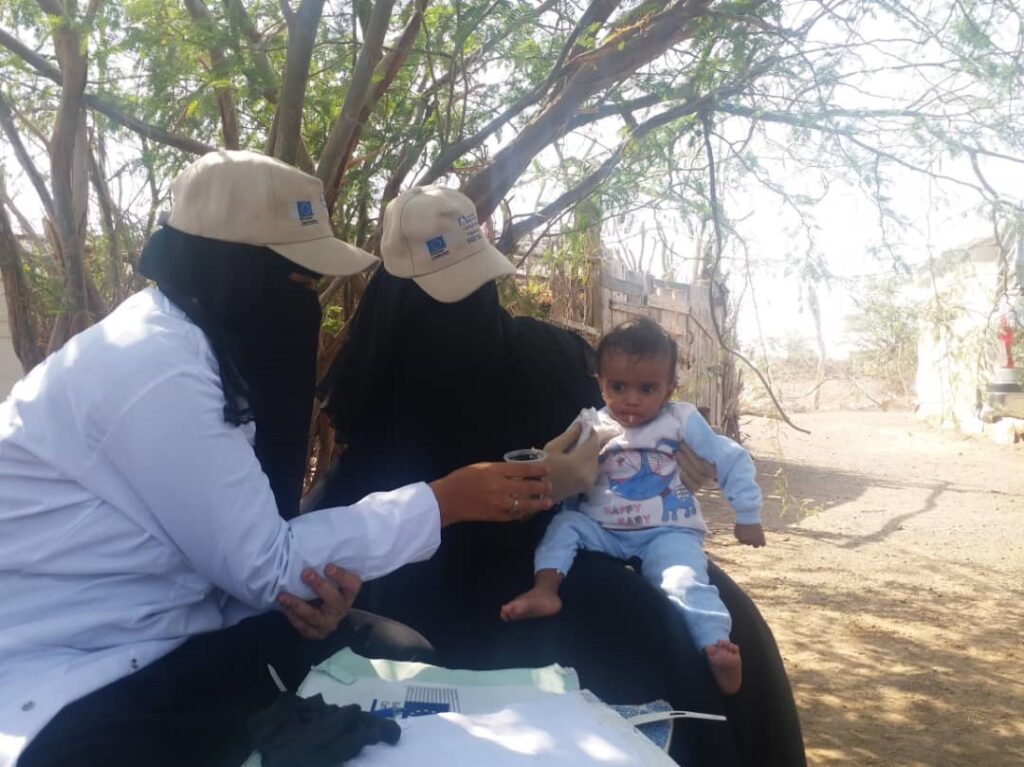Normal life unraveled quickly for 23-year-old Sumaiha Ibrahim when she and her family were forced to flee the dangers of war in early 2021, trading the security of home in Yemen’s western Al-Hodeida governorate for the uncertainty of a displacement camp miles away.
Her life tipped to the edge of despair when her older sister died in childbirth. It was a family tragedy that suddenly left her as the primary caregiver for her newborn niece, a baby girl named Dhruf, who had survived. Unable to breastfeed the child, Sumaiha sought help from nursing mothers living in the camp, crowded with internally displaced persons (IDPs) from other parts of the country. She also plied the baby with other liquids, including water, tea and animal milk, then started the child on solids such as porridge made from rice and other locally available cereals, such as maize and millet.
It wasn’t enough. Despite her efforts, Sumaiha was clearly losing her struggle to keep the baby healthy.

Because the family’s shelter was deep inside the camp—far from the main road where an International Medical Corps mobile medical team routinely conducted mass screenings to identify residents in need of urgent healthcare—Sumaiha held back from attending such a session, convincing herself that the trek to the main road was too risky and arduous, because the baby was constantly crying.
Out of options just months later, she finally attended a mass screening session that was open all camp residents. There, our mobile health and nutrition team quickly determined that the baby showed signs of severe acute malnutrition with medical complications that included diarrhea, dehydration and acute respiratory infection. They urged an immediate transfer to the local district hospital for treatment—but again, Sumaiha hesitated. Despite the urgings of camp leaders, neighbors and medical counselors, she would not consent.
Out of options, our mobile team agreed to admit the baby girl into the only other treatment available: an outpatient therapeutic program (OTP) open to severely acute malnourished children with no medical complications. The program enabled Sumaiha to take the child home after the treatment session, but only after we had prescribed medications, supplied her with packets of special “ready-to-use therapeutic food” (RUTF) and trained Sumaiha how to prepare the food using safe drinking water.
Our mobile medical team leader ordered daily visits to check on the baby’s progress—visits that were added to the team’s already long list of commitments in the camp. After four days, the team determined that the child’s intake was enough to warrant continuing the treatment. It was an encouraging sign of progress and, for the first time, Sumaiha began to relax.

After a month, the baby was strong enough to move around on her own and gradually began eating small portions of the regular family meals. The mobile team continued to work with Sumaiha, counseling her about healthy nutrition, the practices of infant and young-child feeding (IYCF) and the importance of practicing proper hygiene and COVID-19 prevention measures. Two and a half months after Sumaiha consented to the outpatient therapeutic treatment, Dhruf’s condition continued to improve.
Buoyed by the child’s progress, Sumaiha agreed to take Dhruf to the hospital to continue with the therapeutic supplementary feeding program (TSFP) treatment—and, after two additional months, Dhruf was discharged as cured. Sumaiha was more than grateful. She was so convinced by the results that in the weeks that followed, she brought two additional women—each with a small child exhibiting symptoms of severe acute malnutrition— to the camp’s medical treatment point.
The transformation of Sumaiha from a wary, uncertain caregiver hesitant to seek assistance into someone who actively advocates for treatment was complete. She now serves as a community health volunteer within the camp. For members of our mobile health and nutrition team, the experience was a reminder that refusing to give up on a struggling patient and continuing to engage can save lives.
